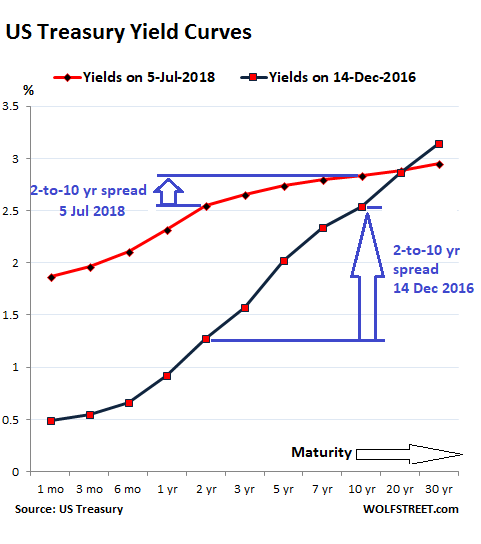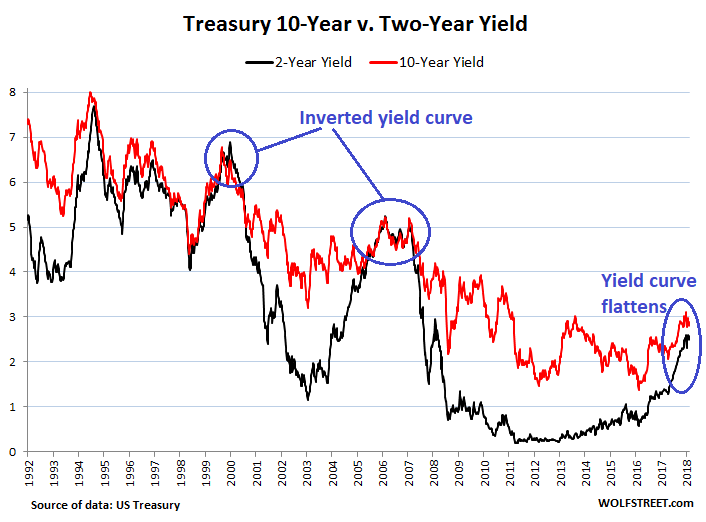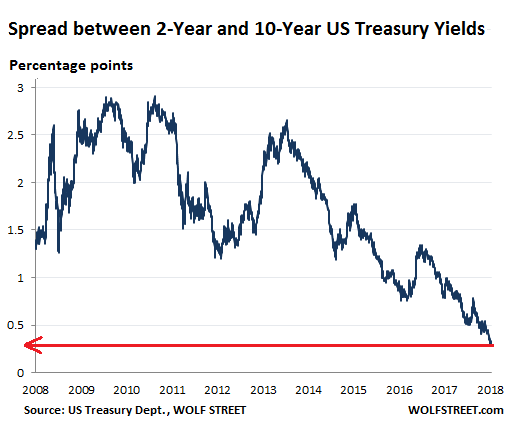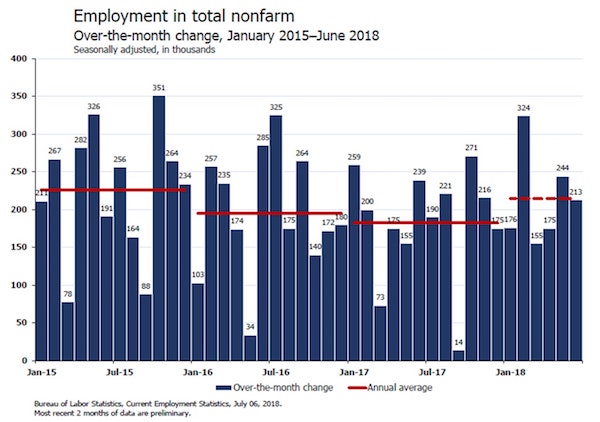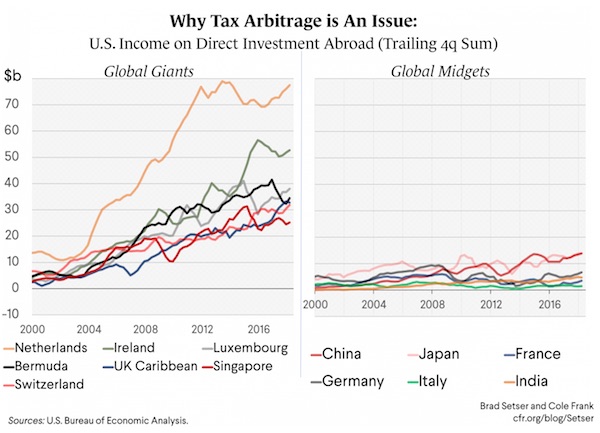
Takeuchi Seiho Bear in snow 1940

As I said earlier today, I picked up a whole slew of articles on the “coronavirus” through the day yesterday, collected some more today, and then decided not to put them in my daily Debt Rattle news aggregator today because it would have been too much.
I wasn’t trying to focus on number of deaths or cases, interest in that is overblown by now. What I look for is news about the consequences of the “coronavirus” epidemic. See, most people look at the numbers, think that they are lower than they could be, and lower than in armageddon predictions, so we’ll all be alright.
And I’m not saying that we won’t be, never have, I’m saying the numbers are no longer the main story. The story has changed into the effects of the virus on domestic and international policies, and ultimately -especially- on global trade and travel. And those effects have only just started. Just like I said 2 days ago in The Big Lockdown.
Initially, the effects, the fallout, from the epidemic, will appear minor, companies will be able to switch things a little and do their thing. But at some point that changes. As I saw somebody say earlier, if even just 1% of your car parts are from China, and you can’t get them anymore, you’re not going to be building a car. The vast majority of carmakers use 30% Chinese parts or more.
And then you also have many thousands of cancelled flights, and cruises, and what has a much bigger impact: shipping of goods to, but of course mostly from, China. Chinese ports are already filing up with items like fruits, but that’s nothing yet. If you put half your country on lockdown, who’s going to service incoming and outgoing ships?
The Lunar New Year is done this Monday, but we know Chinese trains are down 75% of their passengers, and plane travel is off by over 50%. Xi Jinping allegedly told Trump yesterday that “We are fully confident and capable of fighting the epidemic. The long-term trend of China’s economic development will not change”, but how much of that is wishful thinking?
How do you restart an economy that has 400 million people under lockdown, and that sees all westerners leave? Xi must be getting anxious and nervous by now. And renditioning people is not going to do the trick. Ideally, he would convince the rest of the world that the virus is contained and no longer dangerous. No doubt the lowering rates of change in new cases is step one in trying to do that.
Xi would have had it easier if China hadn’t first attempted to wipe the disease under the carpet for 1-2 months. But that would be against longstanding Party lines, as I wrote in The Party and the Virus. Step one is always: “complete denial, not a word”.
And now he doesn’t just have western governments to deal with anymore, there’s also the people (both at home and abroad). Just wait until the first death is recorded in the US, Britain, France or somewhere near. The west will tend strongly towards a lockdown too. Politicians will cry: “it’s too expensive”, but that won’t be people’s priority. Fear will be.
So, three essays so far on the topic, 2019-nCoV, The Party and the Virus and The Big Lockdown, and here goes with lockdown fallout.

This is like a quarter of the population. 80 million in US terms. Do the math for your own country. 20 million French, 25 million Germans? Wow. Let’s see that one.
400 Million People Are On Lockdown In China As Guangzhou Joins Quarantine
Guangzhou, the capital of China’s southwestern Guangdong Province and the country’s fifth largest city with nearly 15 million residents, has just joined the ranks of cities imposing a mandatory lockdown on all citizens, effectively trapping residents inside their homes, with only limited permission to venture into the outside world to buy essential supplies.
Breaking: Guangzhou City (population: 14 M) locked down. All residential blocks be isolated from each other. So far around 400 million people locked down in #China to contain #coronavirus. #coronavirusOutbreak Original Chinese official report:https://t.co/emfLIaOLut pic.twitter.com/RmX82iDOEH
— 曾錚 Jennifer Zeng (@jenniferatntd) February 7, 2020
The decision means 3 provinces, 60 cities and 400 million people are now facing China’s most-strict level of lockdown as Beijing struggles to contain the coronavirus outbreak as the virus has already spread to more than 2 dozen countries. That’s more than 400 million people forcibly locked inside their homes for 638 deaths? Just think about that: If there was ever a reason to believe that Beijing is lying about the numbers (and not just because Tencent accidentally leaked the real data), this is it.
It's been said by others but I'll say it too:
The way China is reporting almost an identical number of new coronavirus cases each day (approximately 3000) MUST be a reflection of its diagnosis capacity rather than the true caseload, which is likely much worse.
— Mark B. Spiegel (@markbspiegel) February 7, 2020

Saw this yesterday and thought: that’s very extreme. Again, imagine this in your own country or city. What would that take? 100 infections and 2 deaths?
Wuhan Ordered To Round Up All Infected Residents For Mass Quarantine
A senior Chinese official has ordered Wuhan authorities to immediately round up all residents infected with the novel coronavirus and place them in isolation, quarantine camps, or designated hospitals, according to the New York Times. City investigators have also been ordered to go to each home and check the temperature of every resident, as well as conduct interviews with infected patients’ close contacts.
“Set up a 24-hour duty system. During these wartime conditions, there must be no deserters, or they will be nailed to the pillar of historical shame forever,” said Sun Chunlan, a vice premier in charge of leading the CCP’s response to the outbreak. “The city’s authorities have raced to meet these instructions by setting up makeshift mass quarantine shelters this week. But concerns are growing about whether the centers, which will house thousands of people in large spaces, will be able to provide even basic care to patients and protect against the risk of further infection.” -NYT

No wedding parties, locked in your home just like those cruise passengers are in their cabins. The idea of switching off elevators so people don’t go out is “brilliant”.
China Imposes Tougher Lockdown Measures
Beijing has banned group dining for events such as birthdays and weddings while cities such as Hangzhou and Nanchang are limiting how many family members can leave home each day. Hubei province, the worst hit by the virus, has switched off lifts in high-rise buildings to discourage residents from going outside. Its capital, Wuhan, has a lack of beds and equipment, one senior city official said. Despite the rapid construction of two hospitals, the volume of patients is causing severe strain. Reports on social media say the Wuhan government is to carry out door-to-door temperature checks on residents.
Human Rights Watch director Kenneth Roth said China had suppressed reports in the early days of the outbreak and clamped down on criticism of its handling of the crisis. “There’s no place for secrecy in fighting an epidemic,” he said. Although he praised Beijing for quickly sharing the DNA sequence of the virus, he attacked the lockdowns policy. “Quarantines of this sort typically don’t work. Quarantines, the kind that public health officials advocate, are much more targeted. They’re aimed at people who have been identified as having the virus,” he said. Mr Roth said there were “huge gaps” in getting people fed, housed and treated. Chinese officials have strongly defended their approach.

This morning’s numbers. “We have declared a people’s war against the epidemic through prevention and control..”
And Trump told Xi he would win that war. But only after he closed the borders with a 14-day quarantine even for Americans,
China Reports 73 New Deaths From Coronavirus, 3,143 New Cases
Chinese President Xi Jinping told his US counterpart Donald Trump on Friday that China’s economic development would not be affected by the outbreak, according to CCTV, China’s state broadcaster. CCTV reported that, in a phone conversation with Trump, Xi said the Chinese government and people had put their fullest efforts into containing the outbreak since it had started. “We have adopted the most comprehensive and strictest prevention and control measures through mobilising and rapid responses. We have declared a people’s war against the epidemic through prevention and control,” Xi was quoted as saying. “We are fully confident and capable of fighting the epidemic. The long-term trend of China’s economic development will not change.”

It’s either one giant dilemma or very many smaller ones. But I don’t see him solving it before the peak of the epidemic in 2-3 months. What are Chinese workers do in the meantime?
China Faces Dilemma As It Tries To Get Back To Work
China is facing a dilemma as it tries to get back to business after the extended Lunar New Year holiday amid fears that a mass movement of workers across the country will worsen the spread of the deadly coronavirus that has struck nearly 30,000 people. Allowing the workforce to return to their jobs was crucial both for sustaining economic growth and providing support to fight the outbreak, according to Lu Zhengwei, chief economist at the Industrial Bank in Shanghai. “It’s obviously desirable for employers who are now paying rent, salaries and social welfare for their employees, for nothing in return,” he said, adding that most small and medium enterprises in China could only last about a month in the current situation.
After the State Council, China’s cabinet, issued a directive to extend the holiday until last weekend as part of measures to contain the virus outbreak, a number of provinces and municipalities – including Beijing, Shanghai, Zhejiang and Guangdong – pushed back the return to work to this Monday. That extended hiatus of business operations will have an impact on the country’s economy, which has already been battered by the protracted trade war with the United States. Advisory firm Oxford Economics has lowered its growth outlook for China to 5.4 per cent in 2020, compared with 6 per cent previously, according to its chief Asia economist Louis Kuijs. Meanwhile, Tao Wang, China economist at UBS, forecast the country’s first-quarter growth at 3.8 per cent, and 5.4 per cent for the whole year.
[..] Huang Xin, an official with the China Railway Corporation, said about 2 million to 3 million passengers were expected to travel each day from Saturday to Tuesday – only about one-quarter of the normal peak number following the Lunar New Year break. “We will be paying extra attention to return trips of college students and migrant workers,” he said at a press briefing in Beijing. “We will also use big data to adjust our railway capabilities.” [..] Similar arrangements had been made for air passengers, said Yu Biao, an official with the Civil Aviation Administration of China. Yu said the number of flights in China had been halved in the past week, and only 45 per cent of seats had been filled.

Mandatory 14-day quarantines for US citizens. What will people do, use their remaining vacation days? Or not go?! I think I know.
China Grows Isolated As Airlines Cancel More Than 50,000 Flights
One by one, air carriers have cut service after demand fell sharply and governments took more drastic measures that they say aim to curb the spread of the disease [..] These steps have left China, the world’s second-largest air travel market after the U.S., more isolated. Airlines in dozens of countries have scaled back service or in the case of U.S. airlines canceled flights altogether to the Chinese mainland and Hong Kong as the coronavirus spreads.
This will drive down airlines’ 2020 revenue and deprive other segments of the travel industry, including hotels and retailers, of high-spending tourists. The outbreak has some travelers exercising more caution with their travel, even for destinations other than China. Many travelers would be inquiring about spring travel during this time of year, said Cindy Guo, who runs Top Travel International in Flushing. “Some people prefer to stay home” because of the virus, she said. The U.S. instituted travel restrictions on Sunday that include requiring returning U.S. citizens who have been in Hubei province — where Wuhan, the epicenter of the virus, is located — to face mandatory, 14-day quarantines.
The Trump administration has ordered self-quarantines for U.S. citizens who have been in other parts of mainland China. Additionally, foreigners who have been in China in the last two weeks, except for immediate family of U.S. citizens and permanent residents and a few others, won’t be allowed in at all. [..]
At stake are more than 165,000 scheduled flights in and out of China between Jan. 29 and March 28 that would affect 27 million travelers, according to data from aviation consulting firm Cirium. More than 54,011 flights, or 28% of the scheduled flights to, from and within China between Jan. 23 and Feb. 4 were canceled, 14% of them the international scheduled flights. Getting around within China is also becoming more complicated, and close to 32% of domestic flights were called off in that period.

And of course it’s not just airlines. Shipping is a much bigger driver of the economy. It’s been less than 3 weeks, and goods are getting stranded, Try 2-3 more months and tell me what you find.
Global Shipping Being Hit By The Coronavirus. Now Goods Are Getting Stranded
The arteries of global trade are clogging up. Shipping companies that carry goods from China to the rest of the world say they are reducing the number of seaborne vessels, as measures to stop the spread of the coronavirus crimp demand for their services and threaten to disrupt global supply chains. About 80% of world goods trade by volume is carried by sea and China is home to seven of the world’s 10 busiest container ports, according to the United Nations Conference on Trade and Development. Nearby Singapore and South Korea each have a mega port too.
[..] “This will affect many industries and limit demand for containerized goods transport,” Sand told CNN Business. Everything from cars and machinery to apparel and other consumer staples are shipped in containers, and disruption to the industry could reverberate far beyond China as the country seeks to contain the coronavirus outbreak by keeping factories shut and workers at home. The longer the health crisis lasts, the harder it will be to move goods around the world.
Already, carmaker Hyundai has suspended production at its plants in South Korea because of a disruption to the supply of parts caused by the coronavirus outbreak in China, the company said in a statement. The shutdowns mean that some ships can’t get into Chinese ports, as the loading and discharging of goods slows, said Guy Platten, secretary general of the International Chamber of Shipping, a trade body.
Others are stuck in dock, waiting for workers to return to ports so that construction and repairs can be completed, Platten added. Still more vessels are idling in “floating quarantined zones,” as countries such as Australia and Singapore refuse to allow ships that have called at Chinese ports to enter their own until the crew has been declared virus-free, added Sand. Platten said he knew of at least one crew that is running low on food because their ship has been idled for so long.

I so feel for these people. Claustrophobic as hell I am.
Coronavirus Infections Triple On Cruise Liner Quarantined In Japan
Dozens of additional passengers aboard a cruise liner in Japan have tested positive for coronavirus, bringing the total number of infections on the ship to 61 as 3,700 people remain trapped on the quarantined vessel.
Stuck at the port of Yokohama since earlier this week, the ship’s 3,700 passengers and crew face weeks of quarantine as medical workers test for signs of the deadly contagion. The ship is now like a “floating prison,” one passenger said on social media, where haunting images have emerged showing its abandoned halls, once bustling with activity. Of the thousands of passengers on board, 273 have shown symptoms of illness, such as cough and fever, or came in contact with those who have.
All of those passengers have now been tested, Japan’s Health Ministry said, noting the 41 new patients will be transferred to medical facilities in Tokyo, Saitama, Chiba and Shizuoka prefectures, as well as Kanagawa. It remains unclear whether additional cases could arise on the ship, as the novel coronavirus has been found to spread person-to-person, even among those not yet showing symptoms, with a long incubation period. Some passengers already expressed fear that they could eventually end up stuck on the vessel for much longer than 14 days if new infections occur. With the number of infections on the ship tripling on Thursday as health screenings continue, Japan now counts at least 86 cases of the lethal coronavirus nationwide.

Welcome! Bring ’em on!
Now the CDC has to figure out who all these people have been in contact with the past 2 weeks and more.
How do they test for asymptomatic carriers? Does the US have enough testing kits? Even if they do, does Britain, does Belgium, France?
And would the US give them away? In China, cities steal each other’s supplies of face masks etc.
Royal Caribbean Ship With 12 Quarantined Passengers Docks In NJ
A Royal Caribbean cruise ship that has 12 passengers quarantined over fears of coronavirus has docked in Bayonne, New Jersey, this morning with ambulances on the scene. The “Anthem of the Seas” arrived in New Jersey just hours ago, at about 6AM, in thick dense fog, according to ABC 6. Several ambulances were on standby at the scene. The passengers in quarantine will all be tested by the CDC, who was also awaiting the arrival of the ship on the scene. The passengers of the ship are all Chinese nationals – many of whom started exhibiting symptoms while aboard the ship, which was coming back from the Bahamas.

From planes to ships to automobiles. It’s a small step for man, big step for us all.
The Global Car Industry Is Bracing For A Huge Shock From China /span>
China makes more cars than any other country, and is also the world’s biggest market. When car plants across China shut last month for the Lunar New Year holiday, the industry was already under huge pressure: sales had been falling for two years due to the loss of tax incentives for electric cars and the slowing economy, and officials were expecting an unprecedented third year of stagnation.
Many of those plants have since been ordered to remain shut at least until next week as the Chinese government scrambles to contain the virus that first appeared in Wuhan, a major autos hub [..] Automakers are bracing for even longer shutdowns and a deeper recession in global sales.
[..] The extended factory closures are expected to make it much more difficult for the industry to emerge from its recession. According to S&P Global Ratings, the outbreak will force carmakers in China to slash production by about 15% in the first quarter. The auto industry is particularly exposed because the virus originated in one of China’s “motor cities.” General Motors, Nissan, Renault, Honda and Peugeot owner PSA all have large factories in Wuhan, which has been on lockdown since late January. Wuhan and the rest of Hubei province account for 9% of total Chinese auto production, according to S&P Global Ratings. PSA Group told CNN Business this week that its Wuhan plant would remain closed until at least February 14.
Volkswagen is most exposed to potential damage. The world’s largest automaker has 24 plants making cars or parts in China, accounting for 40% of its production. [..] The situation could get worse before it gets better. S&P Global Ratings researchers said the Chinese government could extend factory shutdowns in order to limit contagion risk, affecting as much as half of China’s car and auto parts production.

9-10 days? You really think that’ll do it?
Toyota Keeps China Plant Output Stopped Till Feb. 16 As Virus Hits Supply
Toyota Motor Corp on Friday said production at all of its plants in China would remain suspended through Feb. 16, joining a growing number of automakers facing output stoppages due to supply chain issues as the coronavirus outbreak spreads. The Japanese automaker, which operates 12 vehicle and vehicle components factories in China, said it would extend its production stoppage “after considering various factors, including guidelines from local and region governments, parts supply, and logistics.” The decision extends Toyota’s initial plans to suspend operations through Sunday, and comes as the threat from the coronavirus crisis closes in on the global auto industry.

Big one. What’s in the fine print of the contract? What’s the use of going to court if the buyer can’t take delivery? How long would a court case take? How much do you value your buyer?
France’s Total Rejects Force Majeure Notice From Chinese LNG Buyer
French oil major Total has rejected a force majeure notice from a liquefied natural gas (LNG) buyer in China, the first global energy supplier to publicly push back against firms backing out of deals amid the coronavirus outbreak. Concerns that Chinese companies could back out of contracts because of the coronavirus epidemic have slowed down spot crude oil and LNG sales into China, the world’s top energy consumer, increasing global supplies and depressing prices of energy products. “Some Chinese customers, at least one, are trying to use the coronavirus to say I have force majeure,” Philippe Sauquet, head of Total’s gas, renewables and power segment, said during the company’s full-year results presentation on Thursday.
“We have received one force majeure that we have rejected.” Companies invoke force majeure when they cannot meet their contractual obligations because of circumstances beyond their control. Sauquet did not disclose the name of the buyer Total rejected a force majeure notice from. Reuters reported on Thursday that China National Offshore Oil Corporation (CNOOC), the country’s biggest importer of liquefied natural gas (LNG), has declared force majeure on some prompt deliveries with at least three suppliers because of the rapid spread of the coronavirus, two sources said on Thursday. Total is one of the biggest suppliers of LNG to CNOOC, industry sources said.
Last week, a Chinese international trade promotion agency said it would offer force majeure certificates to companies struggling with the fallout from the coronavirus epidemic to give to their overseas partners. Lawyers told Reuters that LNG contracts are typically governed by English law which spell out events that constitute a force majeure and some may include the epidemic clause. Serving the force majeure notice is the first step in a long-drawn out process, they said. The onus is also on buyers to prove that they are not physically able to receive the cargo to demonstrate a force majeure. For instance, if there are port closures or if workers are unable to get to the ports due to the virus.

I love lines like: ““There is absolutely no need to panic buy..”, because what’s the other side of that? You can trust us to tell you when there’s a need to panic?
But a government could never tell you to panic.
Best version is “This is not the time to panic”. And then you go: Okay, I’ll watch some TV then, and I’ll make sure I get my ten hours of sleep. But first thing in the morning….
Panic Buying As Hong Kong Government Silent On Coming Quarantine Move
Anxious Hongkongers scrambled on Thursday to stock up on essentials over fears that border restrictions to contain the coronavirus would choke off shipments, while the government provided scant details on the mandatory quarantine taking effect in less than 36 hours on arrivals from mainland China. As long queues formed at shops all over the city for the second straight day and people jostled to grab toilet and tissue paper, as well as rice and perishables, food suppliers sought to assure the public there was no need for hoarding. “There is absolutely no need to panic buy. We have always worked to ensure a stable supply of food and all these years, throughout all sorts of big events, we have never had a shortage,” Thomas Ng Wing-yan, chairman of the Hong Kong Food Council, told a press conference.
The fears, fed by online rumours, mounted when the government announced on Wednesday it would impose a 14-day quarantine on anyone entering from mainland China, sparking concerns that supplies would also be held up. But while the government said it would reveal more on the quarantine measures on Thursday, the day ended with no information forthcoming, as sources told the Post that Chief Executive Carrie Lam Cheng Yuet-ngor was still locked in meetings over facilities and details on implementation. Even as they gave assurances, representatives of rice, pork, egg, seafood, poultry and fruit-and-vegetable merchants urged the government to exempt cross-border truck drivers from the 14-day quarantine set to kick in on Saturday, to avert any delays in supplies reaching the city.

Li Wenliang appears to have been off by a week or so. Bless his soul, he got caught in Phase 1, in which the Party’s knee-jerk reaction is “complete denial, not a word” (they can’t help themselves). One week later he would have come in in Phase 2, “damage control, massaging the numbers downward”. He would have gotten much less Party flack… See again The Party and the Virus.
Coronavirus Kills ‘Hero’ Chinese Doctor Who Sounded Alarm
A Chinese doctor who tried to warn the world about a new coronavirus died of the disease on Friday, prompting an outpouring of sorrow as the death toll passed 630 and Beijing declared a “people’s war” on the rapidly spreading pathogen. Li Wenliang, 34, died in the early hours of the morning at the hospital where he worked and first raised the alarm about the new coronavirus in the central Chinese city of Wuhan, the epicenter of the outbreak, hospital officials said. An ophthalmologist, Li was one of eight people reprimanded by Wuhan police last month for spreading “illegal and false” information about the coronavirus, a flu-like pathogen that since triggered a global health emergency.
His messages to a group of doctors on Chinese social media warning of a new “SARS-like” coronavirus – a reference to Severe Acute Respiratory Syndrome (SARS) which killed almost 800 people around the world in 2002-2003 – triggered the wrath of Wuhan police. China was accused of trying to cover up SARS. He was forced to sign a letter on Jan. 3 saying he had “severely disrupted social order” and was threatened with criminal charges.
The story of how China announced the death of Dr Li Wenliang & then allegedly told doctors to put his body on life support & say he was ‘critical’. A grotesque end to the story of a brave man who tried to warn about the coronavirus & has now died from it. Produced @brysonandy pic.twitter.com/yy4hngupl0
— Ros Atkins (@BBCRosAtkins) February 6, 2020

… but Phase 2 already gave way to Phase 3: “close all the doors, not to worry, nothing to see here, we got this, no you can’t come in, too risky!”
That’s what these guys get.
Citizen Journalists Who Exposed Beijing’s Lies In Wuhan Have Vanished
Bloomberg reports that Beijing has silenced two of the citizen journalists responsible for much of the horrifying footage seeping onto western social media. As BBG’s reporter explains, Chinese citizen journalists Chen Qiushi and Fang Bin have effectively been “the world’s eyes and ears” inside Wuhan (much of the film produced by American news organizations has consisted of drone footage). In recent days, SCMP and other news organizations reporting on the ground and publishing in English have warned that Beijing has stepped up efforts to censor Chinese social media after allowing citizens to vent their frustrations and share news without the usual scrutiny.
On Wednesday, China said its censors would conduct “targeted supervision” on the largest social media platforms including Weibo, Tencent’s WeChat and ByteDance’s Douyin. All in an effort to mask the dystopian nightmare that life in cities like Wuhan has become. But that brief period of informational amnesty is now over, apparently. Fang posted a dramatic video on Friday showing him being forcibly detained and dragged off to a ‘quarantine’. He was detained over a video showing corpses piled up in a Wuhan hospital. However, he has already been released.
Chen, meanwhile, seems to have vanished without a trace, and is believed to still be in government detention. Last week, we shared one of Chen’s more alarming videos documenting the severe medical supply shortages and outnumbered medical personnel fighting a ‘losing battle’ against the outbreak.

The Automatic Earth cannot survive without your support. Please donate.



